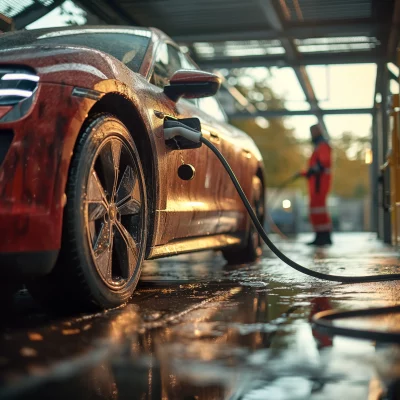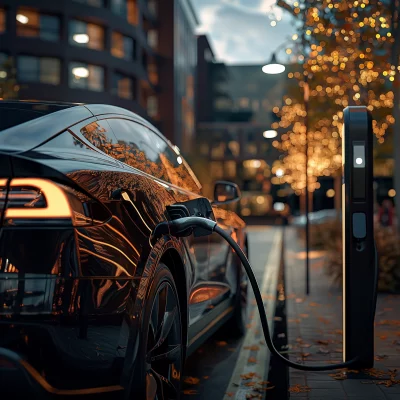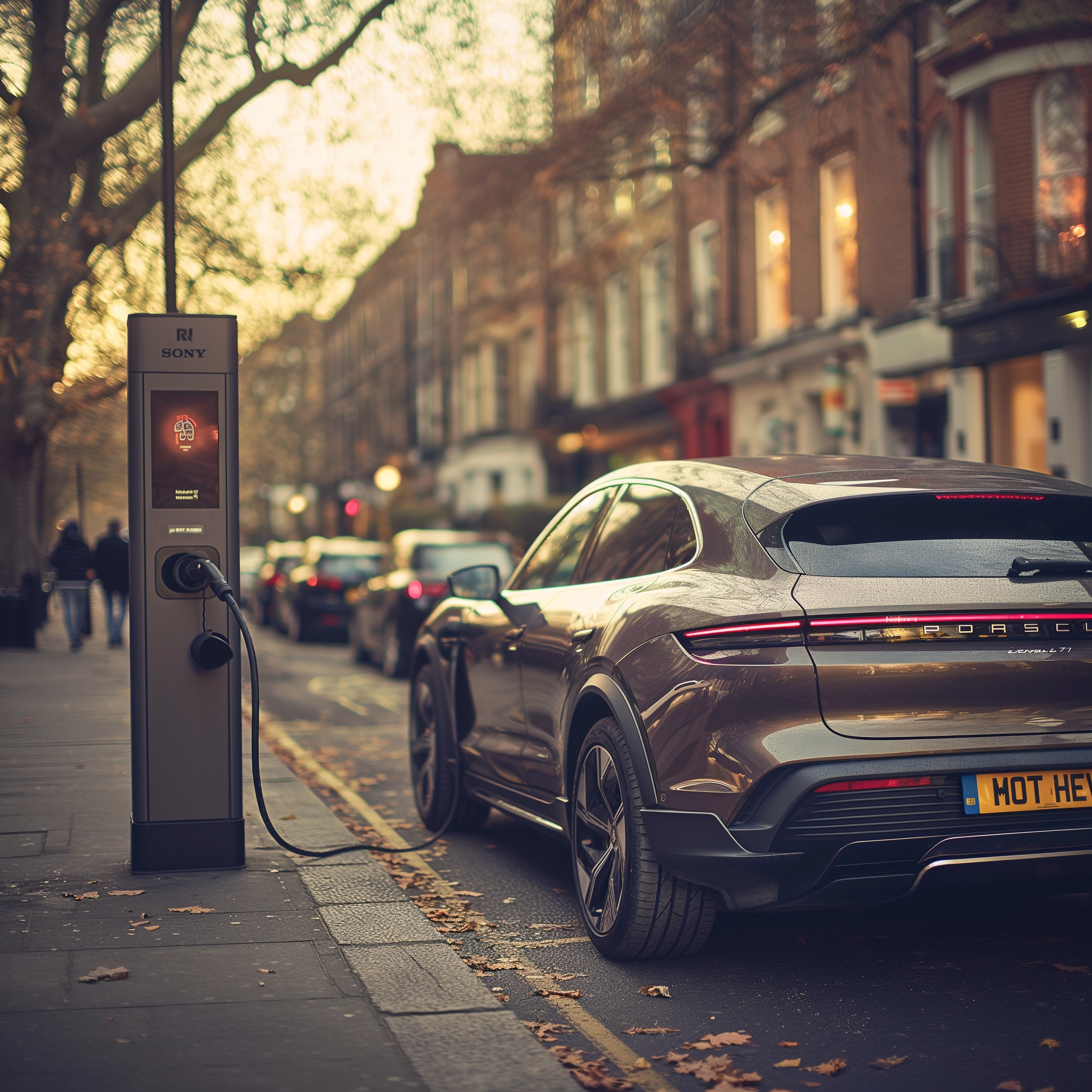Setting out on a road trip in an electric vehicle (EV) across the UK requires meticulous preparation to ensure a seamless and enjoyable experience. El
Setting out on a road trip in an electric vehicle (EV) across the UK requires meticulous preparation to ensure a seamless and enjoyable experience. Electric vehicles need particular attention to charging availability, battery management, and route optimisation to address the distinct challenges of electric mobility.
This discussion explores the vital strategies and preparations essential for EV owners planning to travel across the UK, highlighting the differences between trips in traditional petrol or diesel vehicles.
EV Road Trip Preparation

Preparing for a road trip in an electric vehicle involves meticulous inspection and planning. Before setting off, it is crucial to conduct a comprehensive check of your vehicle. This includes verifying tyre pressure, ensuring that all lights are functioning correctly, and assessing the battery’s health. Each of these components plays a vital role in not only the efficiency and safety of your journey but also in preventing any unexpected issues that might arise en route.
Charging Strategy: An effective charging strategy begins with a pre-departure charge, ideally overnight, to start your journey with a full battery. It’s recommended to maintain the battery level above 30% to avoid range anxiety. Utilising apps like ev.energy and abetterrouteplanner.com can aid in planning your stops for charging based on your route. Google Maps and Zap-Map are invaluable tools for locating charging stations and checking their operational status, ensuring you’re never caught off guard.
Route and Driving Strategy: Careful route planning is another cornerstone of a successful EV road trip. The use of route planning tools not only helps locate chargers but also optimises your route for efficiency and time management. Driving strategy also needs to be considered; knowing the realistic range of your EV under various conditions can help in planning optimal driving intervals and adapting your driving style based on battery levels and road conditions.
Charging Management
Pre-trip and On-trip Charging: Before embarking on your journey, scheduling your charging stops is as crucial as planning your route. This includes choosing strategic locations for overnight and destination charging. During the trip, being familiar with the functionalities of various public charging networks, such as bp pulse, can enhance your charging experience. Knowledge of app functionalities, planned charging breaks, and accessibility to rapid chargers are essential to keep the journey smooth and efficient.
Charging Protocol and Equipment: Setting up accounts beforehand and understanding the transaction costs of different networks can save time. It is also fundamental to ensure that you have the necessary equipment, such as cables and connectors, and that they are in working condition. Carrying RFID cards for network access can also be a backup in areas with poor mobile network coverage.
Vehicle and Personal Readiness
Inspection and Maintenance: Routine fluid level checks—such as coolant, brake, and washer fluids—and brake system and tyre inspections ensure your vehicle is road trip ready. It’s also important to verify the functionality of your vehicle’s lighting system.
Safety, Legal, and Comfort Measures: Carrying all necessary documents, including insurance, registration, and legal paperwork, ensure you are prepared for roadside checks. A comprehensive emergency kit, including a first aid kit, emergency flashlight, and items for sun protection, should always be part of your vehicle’s inventory. Additionally, packing appropriate clothing and entertainment options can make long stretches of driving more comfortable and enjoyable.
Backup and Unexpected Scenario Planning

When planning a road trip in an electric vehicle, one must consider the potential for unexpected scenarios that could disrupt travel. Having multiple charging options is essential, as relying on a single station can become problematic if it’s out of service or occupied. To avoid such inconveniences, it’s advisable to use apps that provide real-time status updates on charging stations. Moreover, planning alternative routes that offer access to additional charging stations can save significant time and stress.
Breakdown Readiness: Preparedness for mechanical or electronic failures is crucial. Subscribing to an EV-specific roadside assistance service offers peace of mind, knowing that help familiar with electric vehicles is just a call away. Keeping a well-documented owner’s manual easily accessible in the vehicle can also aid in addressing minor issues that might arise on the road. Understanding your vehicle’s features and how to troubleshoot common problems can prevent prolonged delays.
Optimisation and Adaptation
Battery Management: Effective battery management is pivotal for extending the range and efficiency of your EV during a road trip. Setting optimal charging thresholds and scheduling charges according to your travel plan helps maintain battery health and ensure power availability. For instance, planning your charging stops during meals or rest breaks can optimise travel time and reduce charging downtime.
Travel Experience Enhancement: Utilising route planning tools effectively can significantly enhance the travel experience by minimising unnecessary detours and ensuring you visit chargers with the fastest charging capabilities. Managing the rhythm of your travel and making time allocations for necessary breaks are essential practices that contribute to a comfortable journey. Regular breaks not only allow for vehicle charging but also help drivers remain alert and refreshed.
Driving and Charging Dynamics: Sharing driving responsibilities can help manage fatigue, especially on longer trips. It’s also wise to adapt your driving habits to weather and road conditions, which can impact battery efficiency and driving safety. Strategic use of rapid charging stations, when available, can reduce charging time and help maintain a steady travel pace.
Expert Integration and Community Advice

Integrating expert advice into your travel planning can provide insights into more efficient use of your vehicle’s resources and enhance your overall trip experience. For example, experts like Ashley Grealish emphasise the importance of charging redundancy and efficient route planning to avoid common pitfalls that many new EV road trippers face.
Community-driven platforms also play a crucial role. Engaging with other EV users through forums or social media can offer practical tips and real-time advice that may not be available through commercial apps. Participating in rewards programs offered by charging networks can save costs and provide access to better facilities.
Final Thoughts
In conclusion, embarking on a road trip with an electric vehicle in the UK involves thorough preparation in several key areas. From meticulous planning of charging and route strategies to ensuring vehicle readiness and legal compliance, each aspect is geared towards creating a seamless and enjoyable travel experience. Moreover, preparing for unexpected scenarios and adapting to on-road realities are just as important as the initial preparations.
With the right tools and information, EV owners can confidently navigate the complexities of road-tripping in a way that is both enjoyable and environmentally friendly. By embracing electric mobility’s unique aspects, travellers can enjoy their journeys and contribute to a more sustainable future.



















































































































COMMENTS